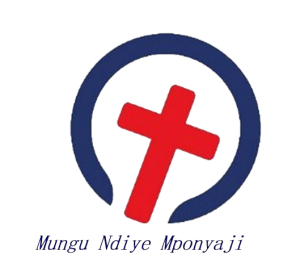OUR PARTNERS
Insurance
OUR PARTNERS
Overview
The National Health Insurance Fund (NHIF) is a Social Health Insurance Institution established under the National Health Insurance Act, Cap 395 with the main objective of ensuring accessibility of health care services to people. It is a Government entity that operates under the Ministry of Health Community Development, Gender, Elderly and Children (MHCDGEC). The management of the Fund is vested to the Board of Directors while its day to day operations are overseen by the Director General. The Fund considers health insurance as a societal affair rather than an individual need and thus operates under the principles of risk sharing and solidarity among members.
Despite the compulsory enrollment arrangement to public servants, the Fund has expanded its coverage to include other groups like Councilors, private companies, education institutions, private individuals, children under the age of 18, farmers in cooperatives as well as organized registered groups like Machinga and Bodaboda groups. The Fund is also administering the Bunge Health Insurance Scheme and covers Members of the Zanzibar House of Representatives.
ISO 9001:2015 Certification
The National Health Insurance Fund is ISO 9001:2015 Certified since 2018 to embrace the benefits of a Quality Management System that significantly increases efficiency and reduces wastes as well as maximizing customer satisfaction.
Core Functions of the Fund
The core functions of the Fund are to:-
- Register members and issue identity cards;
- Collect contributions;
- Certify health service providers for provision of health care services to members;
- Reimbursement of health service providers’ claims;
- Invest the excess funds collected in order to earn income;
- Carry out Actuarial Assessment and Valuation; and
- Provide health insurance education to the public.
Contributions
According to the NHIF Act, employees in the public sector are obliged to register themselves and contribute to the Fund a total of six percent (6%) of their monthly basic salary which is equally shared between the employer and employee. However, the Fund has put in place separate contribution arrangements for other groups that join the Fund voluntarily.
Beneficiaries
NHIF beneficiaries in a family set-up include the contributing member, his or her spouse and up to four legal dependents.
As of December 2019, NHIF’s membership coverage stood at 4,856,062 beneficiaries which is equivalent to 9% of the total Tanzanian population.
Categories of NHIF Members
Members of the Fund are categorized as follows: –
Public Employees
1. Non Public Employees
2. Retired Public Employees
3. Students
4. Children under 18 years
5. Farmers in Cooperative Societies
6.Members of Organized Socioeconomic Groups e.g. Machingas, Bodaboda, Drivers, etc.
7. Individual members under Health Insurance Bundles
8. Bunge Health Insurance Scheme for Members of Parliament
9. Councilors
NHIF Benefits Package
The following medical services are covered by NHIF at all health facilities certified by the Fund:-
- Registration and consultation;
- Medicines and medical consumables;
- Investigations;
- Dental and ophthalmological services;
- Inpatient care services;
- Procedures;
- Surgical services;
- Medical and orthopaedic appliances;
- Rehabilitative services.
However, the following services shall require special approval of the Fund before access:-
- CT-Scan and MRI
- Chemotherapy
- Dialysis services
- Anti-cancers
- Immunostimulant
- Immunosuppressant
- Orthopaedic appliances
- Reading spectacles
NHIF also facilitates provision of services that are normally out of standard package under special agreements basing on the need of the employer through Health Insurance Administration or Supplementary arrangements.
Categories and Network of Certified Health Facilities
The Fund undertakes certifications of facilities that are fully registered by the Ministry of Health, Community Development, Gender, Elderly and Children to provide services to beneficiaries. These health facilities are divided into three groups namely Government, Faith based organization and Privately owned health facilities. Currently the Fund has certified more than 7,900 health facilities with different levels of accreditation to serve the Fund’s beneficiaries. These categories are:-
1.National Referral,
2.Zonal Referral,
3.Regional Referral,
4.District Hospitals,
5.Diagnostic Centers
6.Specialized Clinics,
7.Health Centers,
8. Dispensaries,
9.Pharmacies, and
10. Accredited Drugs Dispensing Outlets.
Network of NHIF Regional Offices
NHIF has established offices in all regions in Tanzania Mainland and Zanzibar to bring its services closer to members and the general public. Each regional office is managed by a Regional Manager and contacts of offices can be seen through this link.
.NSSF CONTRIBUTION EXPLANATION

Overview
The National Social Security Fund was established under the National Social Security Fund Act [Cap. 50 R.E 2018] to provide social security services to members from private and informal sectors.
Core Functions
Registration of members,
Collection of contributions,
Investing of the collected contributions
Payment of benefits to members
Coverage
According to Section 6 of the NSSF Act, the following categories of employers and employees are registrable by the Fund. These categories include the following;
- Private Sector which includes: –
- Companies
- Non-governmental organizations
- Religious organizations
(b) Employees employed in International organizations operating in Mainland Tanzania
(c) Foreigners employed in Mainland Tanzania.
(d) Self-employed.
(e) Any other category of persons specified by the Minister
Contributions
The contribution payable by the employer is twenty per centum (20%) of the employee’s monthly wages
- Employee contribute 10%
- Employer contribute 10%
- Employer may opt to contribute at grater rate
Investment
The Fund investment activities are conducted in accordance of Fund’s Investment Policy guided by BOT guidelines/Principles and The Ministry responsible for Social Security Sector.
Benefits
The Fund provides seven benefits which are categorized as long-term benefits and short-term benefits as follows
Long Term Benefits
Retirement Pension
Invalidity Pension
Survivor’s Pension
Short Term Benefits
Funeral Grant
Maternity Benefit
Unemployment Benefit
Health Insurance Benefit
Pension is a term which expresses all long-term benefits offered by the Fund. It defines periodical payments given to a retired member, invalid persons and survivors of the deceased member to replace the loss of income resulting from old age, disability or death.
